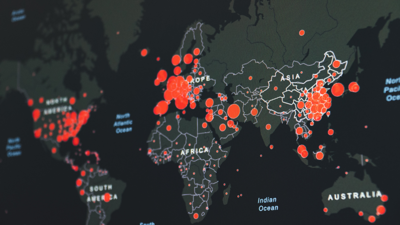Consultation question 5
Does the proposed subject content cover the appropriate skills, knowledge and understanding for digital Functional Skills qualifications?
No. Ofcom’s Communications Market Report 2015 states that maps are the third most popular app download to smartphones (after social networking and weather) and that 66% of smartphone users with 4G connectivity use online maps, the third most popular online activity behind general web browsing (81%), downloading apps (70%), and ahead of online banking (55%), making purchases (55%) and uploading photos/video content (51%). Ofcom also report that two-thirds of UK adults now have a smartphone. GoogleMaps, one of the most popular digital map products, now has more than 1 billion worldwide users.
This extensive engagement with digital maps, location data and route guidance represents a significant and essential element of baseline digital skills not addressed in the draft national standard. This should be rectified.
The core knowledge in each of the skills categories, as currently defined, does not mention any aspect of digital spatial literacy or engagement with online maps and the ability to follow a route. We suggest that engagement with online maps and digital routes requires basic spatial literacy. We would express this as the competent and confident use of maps, with the ability to visualise and interpret location, distance, direction and movement over space.
Consultation question 6
At entry level, does the proposed subject content support individuals to progress to study of digital skills at level 1?
No. Given the prevalence of smartphone usage and the high engagement with maps and route guidance/navigation applications and websites noted in our response to Question 5, we consider it essential that digital Functional Skills qualifications include subject content that addresses:
-
Using a device’s location to discover their position on a map
-
Using online maps to search for and locate landmarks, places of interest or services
-
Using online maps to guide them to a physical location
-
Using online maps to provide additional information about a location, place of interest or service
-
Knowing that turning on device location to use these websites or applications might make them personally identifiable
We propose an additional Functional Skill under “1. Using devices and handling information” at entry level, to read:
"1.xx Use a device’s location to discover or search for their position and other places of interest on a map using a web browser or application, and follow the map’s guidance to reach that location, place of interest or service."
Consultation question 7
At entry level and level 1, does the proposed subject content support progression to further vocational and technical study?
No. Given the prevalence of smartphone usage and the high engagement with maps and navigation applications noted in our response to Question 5, we consider it essential that digital Functional Skills qualifications include subject content that addresses:
-
Using a device’s location to discover their position on a map
-
Using online maps to search for and locate landmarks, places of interest or services
-
Using online maps to guide them to a physical location
-
Using online maps to provide additional information about a location, place of interest or service
-
Knowing that turning on device location to use these websites or applications might make them personally identifiable
We propose an additional Functional Skill under “1. Using devices and handling information” at level 1, to read:
"1.xx Use a device’s location and map within a web browser or application to search for a location, place of interest or service, evaluate the travel information offered (method of travel, travel time, etc) to select the most appropriate route, and follow the map’s guidance to reach that location, place of interest or service."
Consultation question 8
At entry level does the proposed subject content cover the key digital skills, knowledge and understanding needed to complete tasks for everyday life?
No. Given the prevalence of smartphone usage and the high engagement with maps and route guidance/navigation applications and websites noted in our response to Question 5, tasks for everyday life for most adults would include:
-
Using a device’s location to discover their position on a map
-
Using online maps to search for and locate landmarks, places of interest or services
-
Using online maps to guide them to a physical location
-
Using online maps to provide additional information about a location, place of interest or service
-
Knowing that turning on device location to use these websites or applications might make them personally identifiable
Consultation question 9
At level 1, does the proposed subject content cover the key digital skills, knowledge and understanding needed to complete tasks routinely required in the workplace and everyday life?
No. Given the prevalence of smartphone usage and the high engagement with maps and route guidance/navigation applications and websites noted in our response to Question 5, tasks for everyday life for most adults would include:
-
Using a device’s location to discover their position on a map
-
Using online maps to search for and locate landmarks, places of interest or services
-
Using online maps to guide them to a physical location
-
Using online maps to provide additional information about a location, place of interest or service
-
Knowing that turning on device location to use these websites or applications might make them personally identifiable
